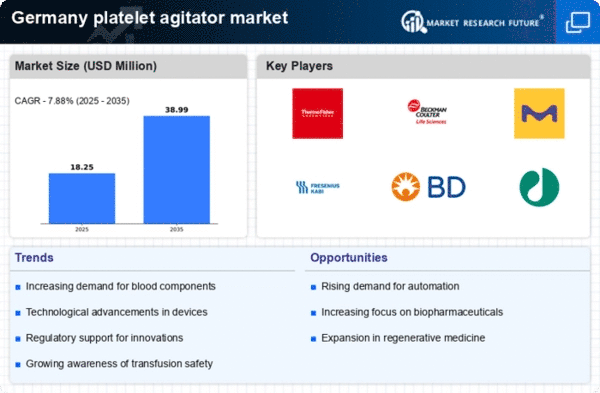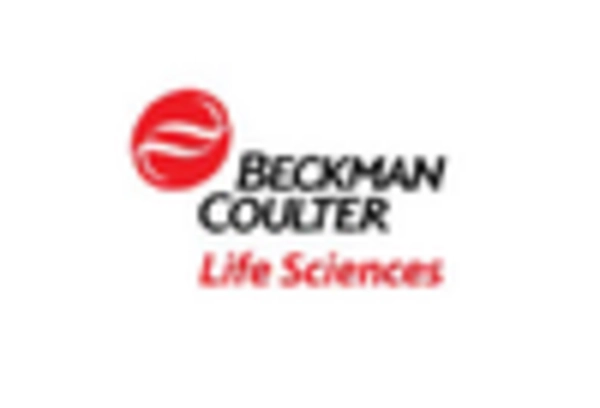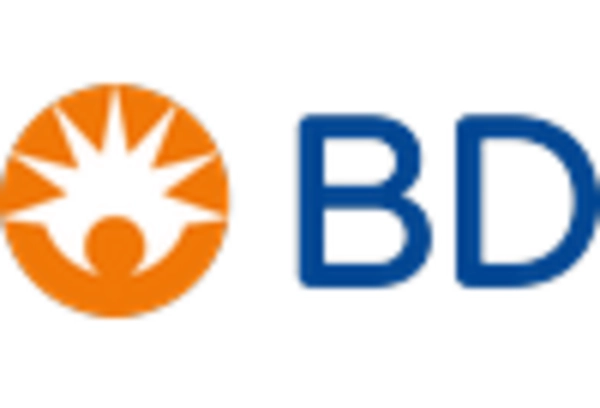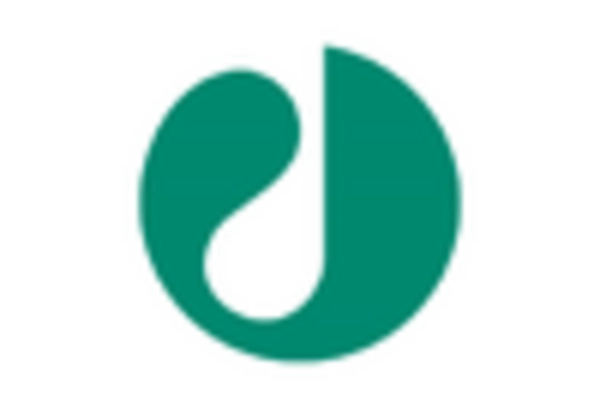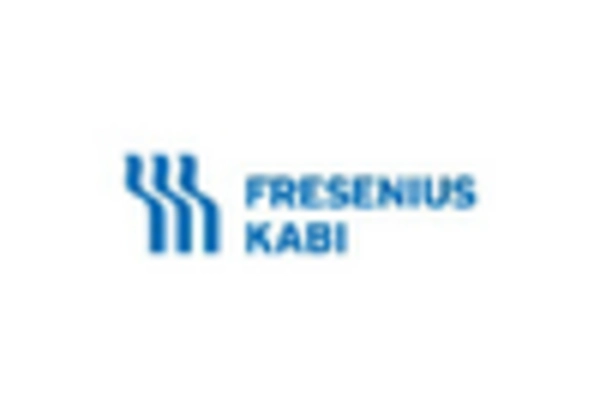Rising Healthcare Expenditure
The increasing healthcare expenditure in Germany is a pivotal driver for the platelet agitator market. As the government and private sectors allocate more funds towards healthcare, the demand for advanced medical equipment, including platelet agitators, is likely to rise. In 2025, healthcare spending in Germany is projected to reach approximately €500 billion, reflecting a growth of around 4% from previous years. This financial commitment to healthcare infrastructure enhances the availability of cutting-edge technologies, thereby fostering the growth of the platelet agitator market. Furthermore, as hospitals and clinics invest in modernizing their facilities, the need for efficient blood component processing equipment becomes more pronounced, indicating a robust market potential for platelet agitators.
Regulatory Framework Enhancements
The evolving regulatory framework in Germany is shaping the landscape of the platelet agitator market. Stricter regulations regarding blood safety and quality control are prompting healthcare facilities to upgrade their equipment. The German Medicines Agency (BfArM) has implemented guidelines that necessitate the use of certified platelet agitators to ensure compliance with safety standards. This regulatory push is expected to drive the market as healthcare providers invest in compliant technologies. By 2025, it is anticipated that compliance-related expenditures in the medical equipment sector will increase by 5%, further stimulating the demand for platelet agitators that meet these stringent requirements.
Growing Awareness of Blood Disorders
The increasing awareness of blood disorders among the German population is significantly influencing the platelet agitator market. As more individuals become informed about conditions such as thrombocytopenia and other platelet-related disorders, the demand for effective treatment options rises. This heightened awareness is likely to lead to an increase in blood donation drives and platelet transfusions, necessitating the use of advanced platelet agitators. In 2025, it is estimated that around 1.5 million people in Germany will be diagnosed with various blood disorders, creating a substantial market for platelet agitators. Consequently, healthcare providers are expected to invest in state-of-the-art equipment to meet the growing needs of patients, thereby propelling the market forward.
Increased Focus on Patient-Centric Care
The shift towards patient-centric care in Germany is significantly impacting the platelet agitator market. Healthcare providers are increasingly prioritizing personalized treatment plans and improved patient experiences. This trend necessitates the use of advanced medical equipment that can efficiently process blood components tailored to individual patient needs. As hospitals and clinics adopt patient-centric approaches, the demand for platelet agitators that offer flexibility and precision is likely to grow. In 2025, the market for patient-centric medical devices is projected to expand by 7%, indicating a robust opportunity for platelet agitators that align with this evolving healthcare paradigm.
Technological Integration in Healthcare
The integration of advanced technologies, such as automation and artificial intelligence, in healthcare is a crucial driver for the platelet agitator market. Innovations such as automation, artificial intelligence, and real-time monitoring systems are increasingly being adopted in medical facilities across Germany. These technologies enhance the efficiency and accuracy of blood component processing, making platelet agitators more indispensable. In 2025, the market for medical automation in Germany is projected to grow by approximately 6%, indicating a strong trend towards technological adoption. As hospitals seek to improve patient outcomes and streamline operations, the demand for sophisticated platelet agitators that incorporate these technologies is likely to surge, thereby expanding the market.


